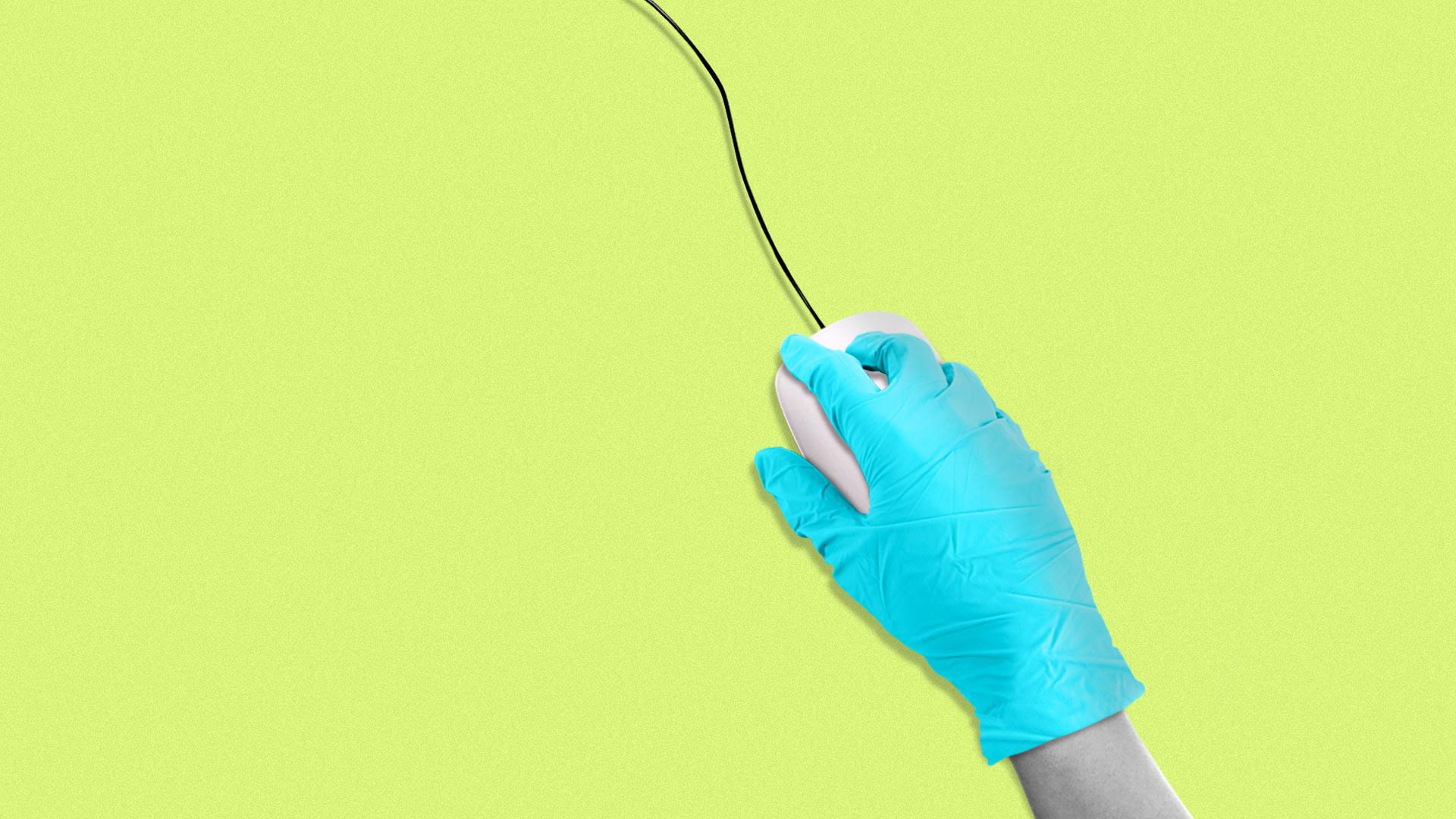The new threat of unintentional coronavirus misinformation
Add Axios as your preferred source to
see more of our stories on Google.

Illustration: Eniola Odetunde/Axios
Tech platforms have gotten smarter about handling deliberate disinformation from bad actors, but the coronavirus' spread presents a different kind of misinformation threat: False information spread by people who are well-intentioned, but fearful and naive.
Why it matters: Facebook, Twitter and other platforms have faced strong pressure to harden themselves against "coordinated inauthentic behavior," but the pandemic will present them with a different sort of challenge — uncoordinated, ignorant behavior at a moment when bad information could lose lives.
The threat was vividly illustrated Thursday when actress and activist Alyssa Milano tweeted out an image (later deleted) listing incorrect recommendations for how to avoid contracting the virus.
- Milano is clearly not a bot, posts lots of information and opinions, has 3 million followers and presumably meant well. (She didn't respond to a request for comment.)
- There are policies that would have allowed the tweet to be taken down had it not been deleted. However, when an account has so many followers, plenty of followers will still see the information before it is deleted (either by Twitter or the user).
The big picture: In the coming days, the problem may get worse as the disease — and rumors — spread. Crises usually require the public to figure things out in real time, University of Washington researcher Kate Starbird told Axios, and that process of "collective sense making" can actually have psychological as well as informational, benefits.
"Unfortunately, though, people don’t always get everything right — and even the 'best' information changes over time. One byproduct of this 'natural' collective sensemaking is misinformation, unintentionally spread."— Kate Starbird
The major platforms all say they are prepared and are already taking action. However, many of their statements point to actions and policies devised to combat deliberately-spread disinformation.
- Twitter: Global trust and safety VP Del Harvey said in a statement to Axios that the company is not seeing large-scale coordinated platform manipulation surrounding the COVID-19 conversation.
"As is standard, we will remove any pockets of smaller coordinated attempts to distort or inorganically influence the conversation. Additionally, we’re continuing to review and require the removal of Tweets that do not follow the Twitter Rules — half of which we catch before they’re ever reported to us."— Del Harvey
- Facebook: In general, Facebook leaves the work of finding misinformation (as opposed to deliberately posted disinformation) to third-party fact-checkers. However, it says it's acting against misinformation that could cause harm. CEO Mark Zuckerberg said in a Facebook Live event on Thursday that the company is taking a "pretty hard line" on misinformation such as fake cures.
"In the American tradition around free expression, you can say a wide variety of things, but you can't yell fire in a crowded theater, because it puts people in imminent danger. ... A lot of health misinformation fits into the category of potentially putting people into imminent danger."— Mark Zuckerberg
YouTube: The Google-owned video site turned off the ability to monetize content related to the virus, but has turned it back on for news organizations and creators who follow its guidelines in hopes of promoting the spread of authoritative content. YouTube says it will remove content that promotes dangerous remedies or cures as well as videos that discourage someone from seeking medical treatment.
Meanwhile: There's also been a spike in deliberate cyberattacks, phishing and spam messages that use the virus as a pretext or that impersonate an official source like the CDC, the World Health Organization or institutions like Johns' Hopkins.
Our thought bubble: In a crisis like this one, remembering media-literacy best practices may not be at the front of our minds. But right now it's extra essential to check the source of your information, make sure it's up to date, and examine the credentials of whoever is offering advice.
- It's even more important to do so if you are considering re-sharing posted information yourself.
Yes, but: Starbird points out that social media can also be a force for good, allowing people to ask for and get help, locate scarce resources and find community in a moment of fear.
Go deeper: Reflecting on the Covid-19 Infodemic as a Crisis Informatics Researcher (Kate Starbird/Medium)
